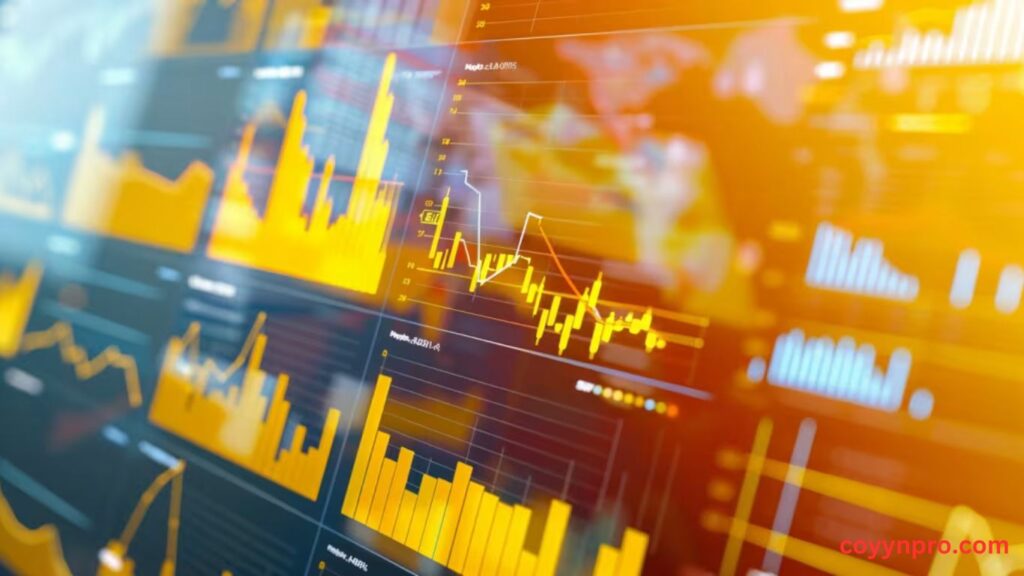The nickel market is rapidly gaining momentum, drawing the attention of discerning investors. This essential metal plays a pivotal role across industries, including stainless steel manufacturing and the growing electric vehicle (EV) sector. As global demand for sustainable technologies increases, the need for nickel is expected to skyrocket. But what does this shift mean for investors seeking to seize new opportunities? At 5StarsStocks.com, we provide in-depth analysis of the nickel industry, offering valuable insights that can empower you to navigate this evolving market with expertise. Join us as we examine top-performing companies and reveal investment strategies that will help you stay ahead of the curve. Let’s dive into the nickel market’s potential!
Table of Contents
Current State of the Nickel Industry
The nickel industry is currently navigating a dynamic phase, shaped by global demand and supply fluctuations. As the push for electric vehicles (EVs) intensifies, so does the demand for high-quality nickel, essential for battery production.
In 2023, nickel prices have experienced notable volatility, influenced by factors such as geopolitical tensions and mining challenges in major regions like Indonesia and the Philippines. These uncertainties are drawing attention from analysts and investors alike.
Sustainability is becoming a key focus within the sector, with companies increasingly adopting greener extraction methods. This shift not only supports environmental objectives but also attracts socially conscious investors looking to align with sustainable practices.
As industries accelerate their transition to cleaner technologies, nickel’s importance grows. The market’s performance is closely linked to innovations in renewable energy and technological advancements that enhance efficiency across various applications.
Factors Affecting the Nickel Market
The nickel market is shaped by a range of dynamic factors, with global demand—particularly from the electric vehicle (EV) sector—being one of the most influential drivers. As automakers increase production, the need for high-quality nickel continues to rise.
Supply chain disruptions are another critical factor, as natural disasters or geopolitical tensions can disrupt mining operations, leading to reduced market availability.
Regulatory changes also play a significant role, with policies aimed at reducing carbon emissions often favoring materials like nickel, which are integral to cleaner technologies.
Additionally, fluctuations in the prices of competing metals, such as copper and aluminum, can influence investor sentiment and impact nickel investment decisions.
By understanding these factors, investors can better navigate the risks and opportunities within this volatile market.
Top 5 Companies in the Nickel Industry
Several key players are making notable advancements in the nickel industry. One of the most prominent is Vale S.A., a Brazilian mining powerhouse recognized for its extensive operations and commitment to sustainable practices.
Another major player, Norilsk Nickel from Russia, dominates the market with its vast resources and cutting-edge technologies. To stay ahead of the competition, it focuses on production efficiency.
BHP Group also holds a significant position, leveraging its global presence and diversified portfolio to drive profitability in nickel extraction.
Switzerland-based Glencore PLC excels in trading and mining, vitally balancing supply and demand within the nickel market.
Finally, Sumitomo Metal Mining Co., Ltd. has carved out a strong position through strategic joint ventures, boosting its capacity while prioritizing environmental responsibility. Together, these companies are shaping the nickel market’s landscape today.
Investment Opportunities in the Nickel Market
The nickel market offers compelling investment opportunities, particularly with its critical role in electric vehicle (EV) batteries. As the demand for sustainable energy solutions continues to rise, so does the need for high-quality nickel.
Investors should focus on companies that prioritize innovative extraction methods and sustainable practices. These firms are well-positioned to benefit from increasing prices as global consumption grows.
Exchange-traded funds (ETFs) are another attractive option. They provide diversified exposure to the nickel market while minimizing the risks associated with individual stocks.

It’s also essential to monitor geopolitical factors. Countries rich in nickel reserves often experience fluctuations that can significantly impact prices.
With technological advancements and policy shifts supporting green energy, now may be a prime time to invest in the nickel sector. Staying informed about market trends and emerging technologies will enable investors to make well-informed decisions.
Tips for Navigating the Volatility of the Nickel Market
The nickel market can be volatile, so staying well-informed is crucial. Monitor updates on global supply and demand trends regularly, as economic reports from key producers like Indonesia and the Philippines often offer valuable insights into price fluctuations.
Diversification is a key strategy to manage risk. Avoid putting all your investments into nickel stocks. Consider expanding your portfolio into related sectors, such as electric vehicles, which rely heavily on nickel for battery production.
Setting clear investment goals is essential for effective risk management. Before making any investment decisions, assess your risk tolerance.
Limit orders are another smart tactic for safeguarding against sudden price drops. By setting predetermined buy or sell levels, you can minimize potential losses during market volatility.
Utilize resources like 5StarsStocks.com for expert analysis and real-time data to help guide your investment decisions in this unpredictable market.
How Does the Global Demand for Nickel Impact Stock Prices?
Global demand for nickel plays a pivotal role in influencing its stock prices, as metal is crucial in industries such as electric vehicle (EV) manufacturing, renewable energy, and construction. As these sectors expand, nickel prices tend to rise, creating valuable investment opportunities.
The EV industry, in particular, is a major driver of nickel demand due to its essential role in battery production, where it improves energy density and battery longevity.
As the world shifts toward electric mobility, demand for nickel has surged, especially in regions like Europe, where the UK plans to phase out petrol and diesel vehicles by 2030.
The growing infrastructure boom and increased demand for stainless steel are also contributing factors to the rising nickel prices.
By staying on top of global trends and utilizing platforms like 5StarsStocks.com, investors can better navigate market fluctuations and make well-informed investment decisions.
Frequently Asked Question
What drives the demand for nickel in the global market?
Nickel’s demand is primarily driven by its role in electric vehicle (EV) batteries, renewable energy solutions, stainless steel production, and other industrial applications. As industries like EV manufacturing grow, so does the need for nickel.
How does nickel impact electric vehicle (EV) production?
Nickel is essential for EV battery production as it enhances energy density, battery life, and overall efficiency. The growing shift towards electric mobility has significantly increased the demand for nickel.
What factors influence nickel prices?
Global supply and demand dynamics, geopolitical tensions, mining disruptions, environmental regulations, and changes in key industries like EV production, stainless steel manufacturing, and renewable energy influence nickel prices.
Which countries are the largest producers of nickel?
Indonesia, the Philippines, Russia, Canada, and Australia are the largest nickel producers. These countries have significant mining operations that supply the global market.
How does geopolitical instability affect the nickel supply?
Geopolitical tensions in key nickel-producing countries can disrupt mining operations, affect supply, and cause price volatility. Political unrest or trade disputes can also hinder production or export capabilities.
What role do environmental regulations play in the nickel industry?
Increasing environmental regulations push for greener extraction methods and more sustainable practices in nickel mining. These regulations can affect production costs and influence investor sentiment toward companies that prioritize sustainability.
What investment opportunities exist in the nickel market?
Investors can explore opportunities in nickel mining companies, exchange-traded funds (ETFs), and related industries like electric vehicles and renewable energy. Companies adopting innovative extraction methods and sustainable practices are also attractive investments.
Conclusion
The nickel market is at a pivotal moment, driven by growing demand in key sectors such as electric vehicles, renewable energy, and infrastructure development. As the world shifts toward cleaner technologies and sustainable practices, nickel’s role becomes increasingly crucial, presenting both risks and opportunities for investors. Staying informed about global trends, geopolitical developments, and technological advancements will be essential for navigating this dynamic market.
By closely monitoring these factors and leveraging expert insights from platforms like 5StarsStocks.com, investors can make informed decisions and strategically position themselves to benefit from the evolving nickel market. Whether through direct investments in nickel companies, ETFs, or related industries, the market offers diverse opportunities for those looking to capitalize on its growth potential.


